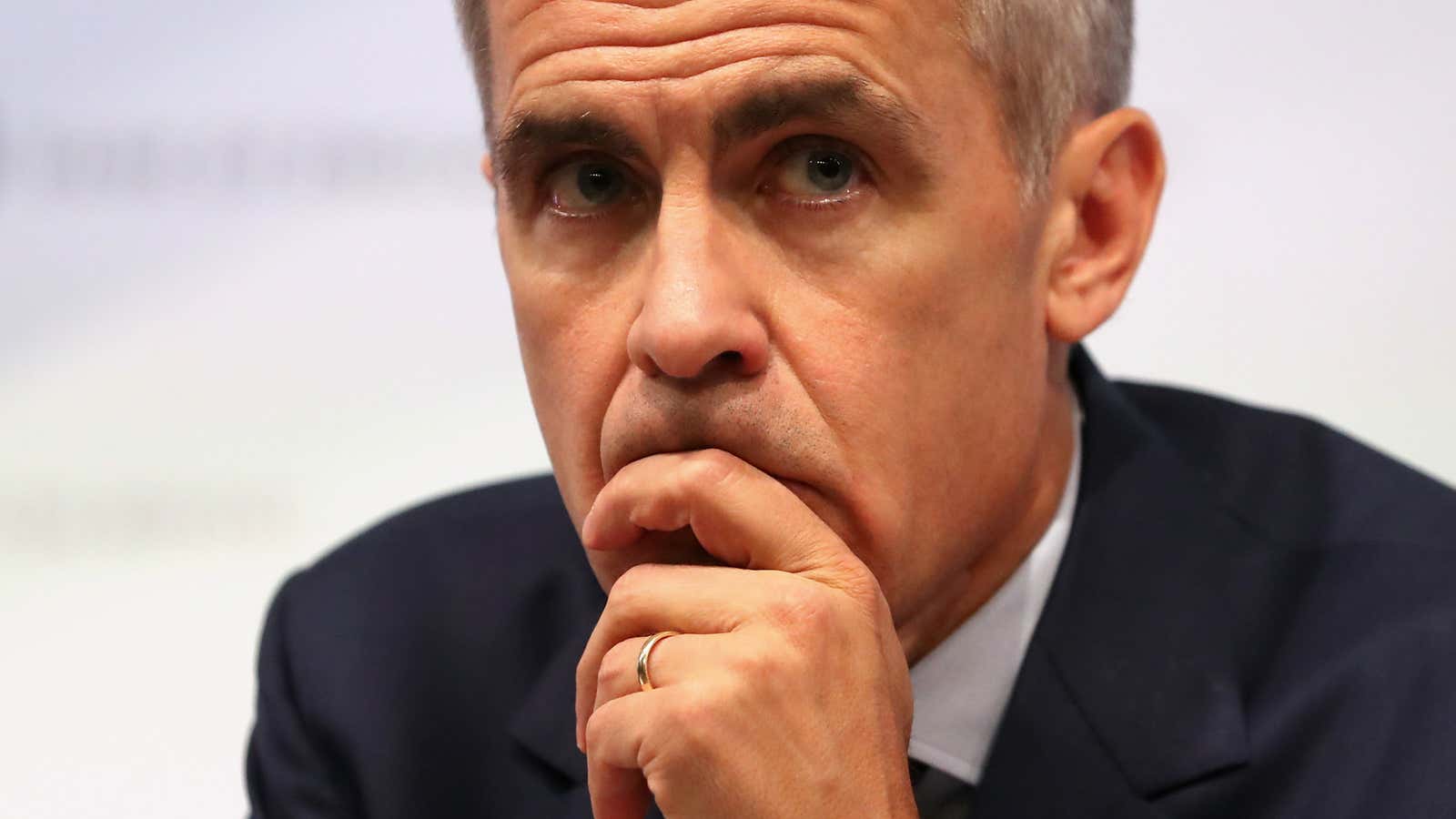Bank of England governor Mark Carney could work on his timing. Yesterday, he hiked the central bank’s benchmark interest rate to 0.75%—the highest level in nearly a decade. Today, he said the prospects of Britain crashing out of the EU—something that could require the bank to reverse course immediately—are “uncomfortably high.”
The central bank governor is among a growing list of people who are concerned about what will happen when Britain leaves the EU in March next year. Medication is being stockpiled—and there are talks of doing the same for food (paywall)—in case the UK leaves the bloc without a trade deal and other crucial transitional agreements, a scenario known as a “no-deal Brexit.”
Just yesterday, Carney had said that the UK central bank could not be “handicapped or tied by the range of Brexit possibilities,” a point directed at criticism from economists and investors who think the likelihood of a no-deal Brexit makes the bank’s decision to hike rates unwise.
But today’s comments are among Carney’s most vocal warnings about Brexit since the 2016 referendum result, which sent the pound into free-fall and forced the UK central bank to cut its benchmark interest rate to its lowest-ever level, 0.25%. He had been criticized during the referendum campaign for cautioning that a decision to leave the EU could spark a recession, and for saying that Brexit was a risk to Britain’s financial stability.
A no-deal Brexit—which could see the country’s car industry upended, up to 500,000 jobs lost, and overseas investment dry up—is “highly undesirable,” Carney told the BBC.
